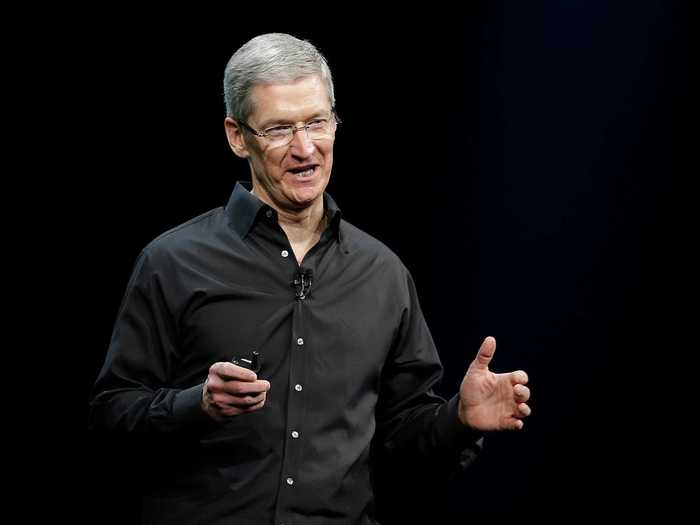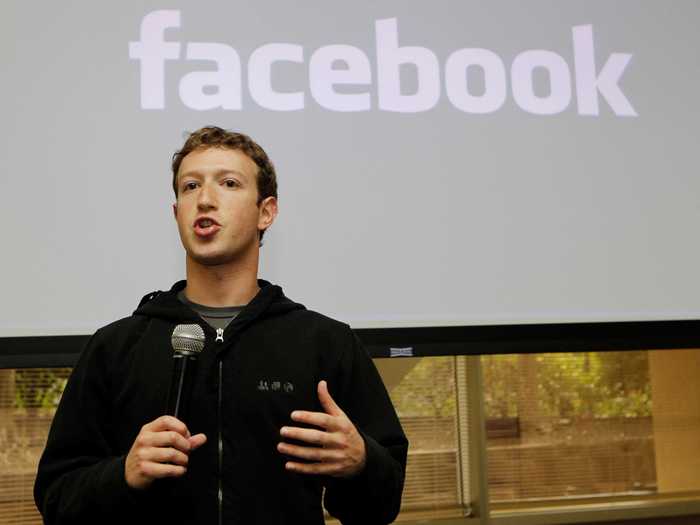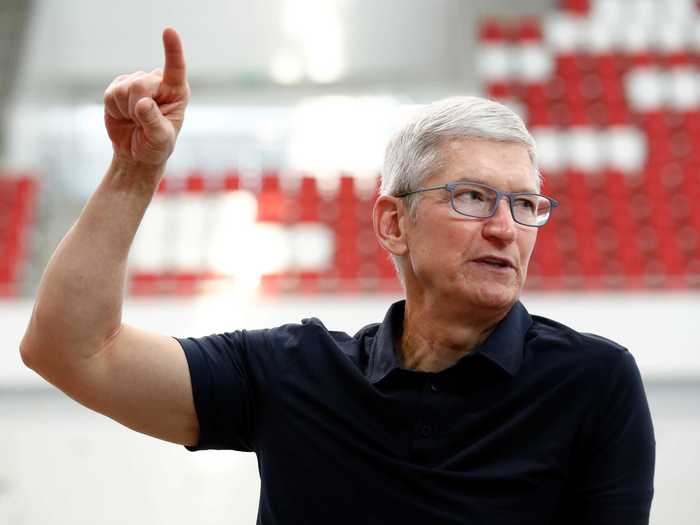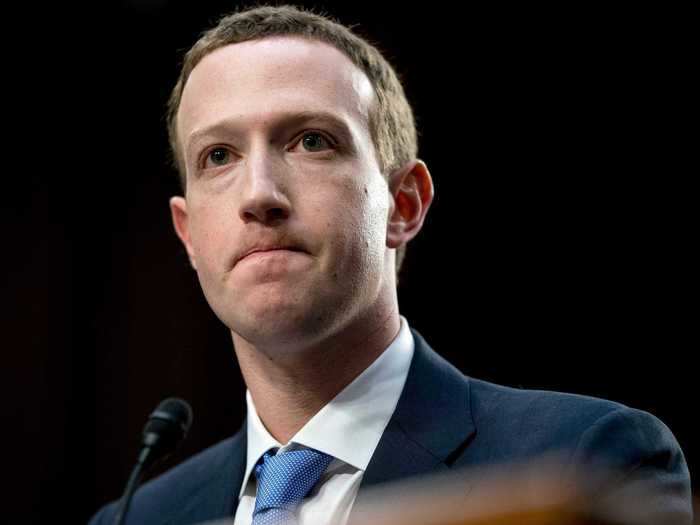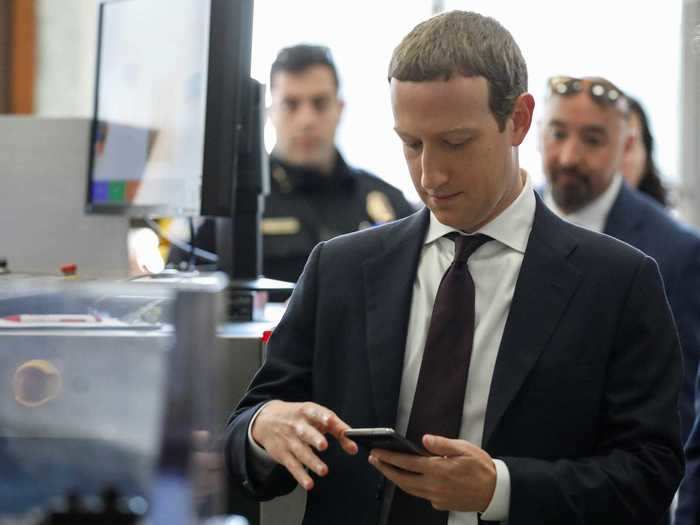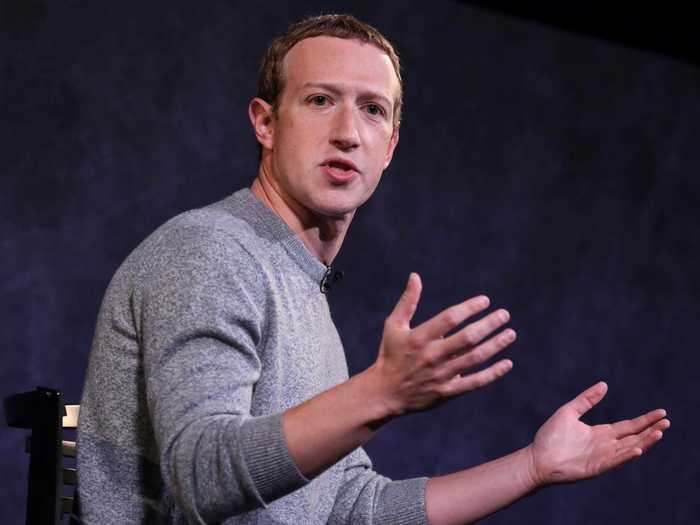Apple CEO Tim Cook, left, and Facebook CEO Mark Zuckerberg.AP; Francois Mori/AP
- Facebook CEO Mark Zuckerberg and Apple CEO Tim Cook have been adversaries for years.
- Their feud dates back to at least 2014, when Cook seemed to criticize Facebook's business model.
- Since then, they've traded barbs over everything including how expensive Apple products are and the Cambridge Analytica scandal.
- Facebook even confirmed the rivalry in 2018, saying in a blog post that the two CEOs have consistently disagreed.
- Most recently, Zuckerberg slammed Apple's App Store policies, saying the company has a "stranglehold" on iOS apps, according to BuzzFeed News.
The long-standing feud between Mark Zuckerberg and Tim Cook appears to be raging on.
Last week, Zuckerberg criticized Apple's controversial App Store policies, accusing the company of charging "monopoly rents," according to a report from BuzzFeed News' Pranav Dixit and Ryan Mac. And while it's one of the more candid comments Zuckerberg has made about Apple and Cook, it's hardly the first time he's skewered them — not to mention the criticism he's faced right back from Cook himself.
Cook and Zuckerberg have been feuding since at least 2014, trading barbs over each other's products and business models. Here's when their grudge began, and everything that's happened since.
The feud between Zuckerberg and Cook became public in 2014, when Cook lambasted Facebook's business model.
AP
In September 2014, Cook gave an in-depth interview with Charlie Rose that touched on a range of topics, including privacy.
During the interview — which took place in the weeks following the infamous leaks of multiple female celebrities' nude photos stored on their iCloud accounts — Cook espoused Apple's commitment to privacy while denouncing the business models of companies like Google and Facebook.
"I think everyone has to ask, how do companies make their money? Follow the money," Cook said. "And if they're making money mainly by collecting gobs of personal data, I think you have a right to be worried. And you should really understand what's happening to that data."
Shortly after, Cook reiterated his stance in an open letter on Apple's dedicated privacy site.
"A few years ago, users of Internet services began to realize that when an online service is free, you're not the customer. You're the product," Cook wrote.
Cook's comments rankled Zuckerberg, who called the claims "ridiculous" and blasted Apple products as being expensive.
AP Photo/Marcio Jose Sanchez
In an interview with Time later that year, Zuckerberg was reportedly visibly irritated by Cook's assertions.
"A frustration I have is that a lot of people increasingly seem to equate an advertising business model with somehow being out of alignment with your customers," Zuckerberg told Time's Lev Grossman. "I think it's the most ridiculous concept. What, you think because you're paying Apple that you're somehow in alignment with them? If you were in alignment with them, then they'd make their products a lot cheaper!"
Their squabble came to a head following the Cambridge Analytica scandal when Cook criticized Facebook's actions.
REUTERS/Edgar Su
In 2018, a whistleblower revealed that consulting firm Cambridge Analytica harvested user data without consent from 50 million users.
During an interview with Recode's Kara Swisher and MSNBC's Chris Hayes in the months following, Cook was asked what he would do if he was in Zuckerberg's shoes
Cook responded: "What would I do? I wouldn't be in this situation."
Cook said that Facebook should have regulated itself when it came to user data, but that "I think we're beyond that here." He also doubled down on his stance that Facebook considers its users its product.
"The truth is, we could make a ton of money if we monetized our customer — if our customer was our product," Cook said. "We've elected not to do that."
Zuckerberg hit back, calling Cook's comments "extremely glib."
AP Photo/Andrew Harnik
"You know, I find that argument, that if you're not paying that somehow we can't care about you, to be extremely glib. And not at all aligned with the truth," Zuckerberg said during an interview on The Ezra Klein Show podcast.
He refuted the idea that Facebook isn't focused on serving people and once again criticized the premium Apple places on its products.
"I think it's important that we don't all get Stockholm Syndrome and let the companies that work hard to charge you more convince you that they actually care more about you," he said. "Because that sounds ridiculous to me."
Privately, Zuckerberg was reportedly outraged by Cook's remarks — so much so that he ordered his employees to switch to Android devices.
REUTERS/Yuri Gripas
In November 2018, The New York Times published a blockbuster report detailing the fallout from the Cambridge Analytica scandal. The Times reported that Cook's comments had "infuriated" Zuckerberg, who ordered employees on his management team who used iPhones to switch to Android.
Soon after the report published, Facebook wrote a blog post refuting some of the reporting by The Times — but not the Zuckerberg-Cook feud.
"Tim Cook has consistently criticized our business model and Mark has been equally clear he disagrees. So there's been no need to employ anyone else to do this for us," Facebook wrote. "And we've long encouraged our employees and executives to use Android because it is the most popular operating system in the world."
In August 2020, Zuckerberg jumped in the fray as Apple faced criticism over its App Store policies.
Drew Angerer/Getty Images
During a company-wide meeting, Zuckerberg openly criticized Apple, saying it has a "unique stranglehold as a gatekeeper on what gets on phones," according to a report from BuzzFeed News.
Zuckerberg also said that the App Store blocks innovation and competition and "allows Apple to charge monopoly rents," BuzzFeed reported.
Apple has been facing antitrust scrutiny from Congress and has been strongly criticized by developers — most notably "Fortnite" creator Epic Games — for the 30% fee it takes from App Store purchases. Apple recently blocked an update to Facebook's iOS app that would have informed users about the fee Apple charges.

